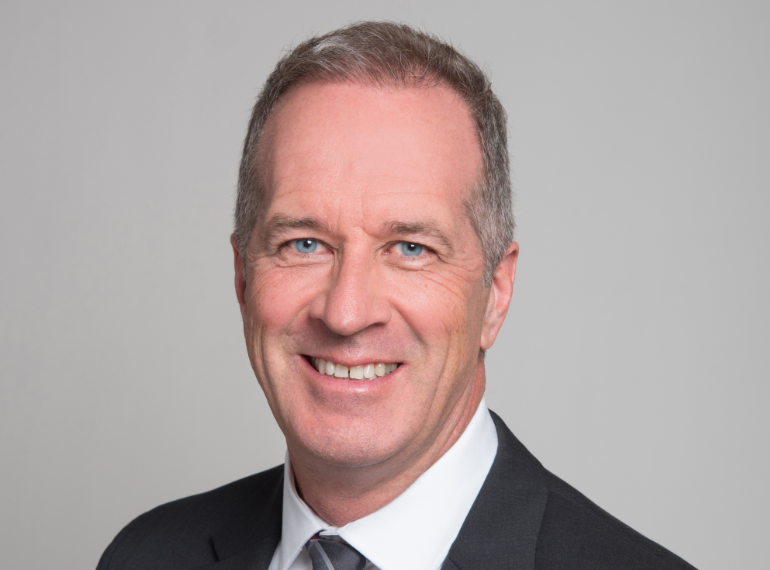In early April, as the London-region recorded an average of 13 new coronavirus cases a day, the head of southwestern Ontario’s largest hospital found himself observing the pandemic’s impacts on health care from a very different perspective — as a patient.

Dr. Paul Woods, president and CEO of London Health Sciences Centre (LHSC), says severe symptoms, an exacerbation of an unspecified pre-existing medical condition, landed him in the hospital and in surgery just as the organization he headed was beginning to see an influx of COVID-19 patients.
Woods had been checked into the emergency department in late March for the severe symptoms but was later released after his condition improved.
Initially, Woods thought his illness may be influenza or a mild case of COVID-19 (he later tested negative). However, over the course of several hours on April 2, Woods says he became seriously ill and was soon re-admitted.
“(I) quickly realized that this was not a mild thing and really became quite acutely ill that night,” he said Tuesday during an interview with 980 CFPL’s Mike Stubbs.
“(I) then went essentially into the entire process that many seriously ill people do of starting at the front door of the hospital and then working their way through a number of different processes and procedures.”
News of Woods’ emergent medical situation became public the following day when LHSC board chair Amy Walby announced that Woods had been granted a temporary medical leave of absence and that COO Neil Johnson would serve as acting president and CEO.

Get weekly health news
Woods would eventually undergo urgent abdominal surgery and spent several weeks at home recuperating. He returned to the job at the start of June.
“It was a very humbling transition over a number of hours on April 2… from a physician, a chief executive officer of a distinguished and prestigious hospital, to a sick and frightened person like the… several hundred thousand people that we that we care for every year,” he said.
During his time at the hospital, Woods says he tried to see the experience through the eyes of a patient — one without the years of medical and executive knowledge he has.
“I was trying to say, ‘OK, well, I’m really sick. I’m scared. I’m extremely vulnerable right now.’ How much more so would it be for someone who, say, didn’t have medical training or didn’t have an administrative understanding of how hospitals work and the familiarity that I have with this?”
He added he also asked questions of emergency department staff during his initial admission to find out what they were struggling with as COVID-19 cases continued rising in the community.
“I was on some painkillers, so I may have asked some stupid questions,” he said.
LHSC’s two hospitals, University and Victoria, reported a peak of 37 COVID-19 patients near the end of April, numbers that have since fallen below five — the hospital won’t say exactly how many unless the tally rises above that number.
Woods says he has come out of his experience with “huge admiration” for LHSC’s workforce.
“Whether it’s nurses or respiratory therapists or porters, and certainly the physicians. I came out a huge LHSC fan, not just because I’m the CEO, but because I was a recipient of those services and they did a great job with me.”
The organization was already facing tough times before the pandemic arrived, announcing last year a $24 million deficit — its first deficit in 13 years — and the closure of nearly 50 beds.
In March, LHSC reported it had shrunk the deficit to $11.5 million by the end of the 2019/20 fiscal year, and early last month, it was announced it would receive some $13 million in funding from the province as part of Ontario Action Plan: Responding to COVID-19.














Comments
Want to discuss? Please read our Commenting Policy first.